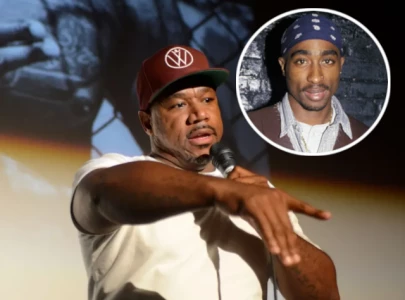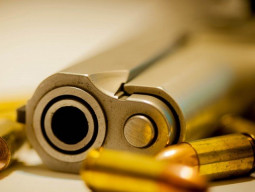
Most Baloch believe that had the Bugti-Musharraf meeting come about in 2005, Balochistan could have been different in 2010, according to a report released by the Center for Research and Security Studies (CRSS).
The report, titled Pakistan’s Security Challenges, quotes officials saying that a meeting had been arranged between then president General (retd) Pervez Musharraf and revered Baloch leader Nawab Akbar Khan Bugti, who was eventually assassinated in August 2006 in an army operation.
Officials said a private aircraft had been sent to fetch Bugti from Sui. Bugti, who lived in Dera Bugti, travelled to Sui to leave for Islamabad but some hawkish elements within the military establishment apparently scuttled the entire scheme by delaying the aircraft on the pretext of a technical failure, according to the report.
Bugti waited for two hours at the Sui airport and then returned to Dera Bugti, after he understood the scheme. “Interestingly, the plane took off minutes after Bugti left, suggesting that some elements within the army opposed Musharraf’s rapproachement,” says the report, in its chapter titled Balochistan — Pakistan’s Festering Wound.
Later in 2005, Musharraf declared in a press conference at the President House that “only three sardars – Akbar Bugti, Khair Bux Marri and Ataullah Mengal – were the problem in Balochistan” boasting, “it is a different age, they wouldn’t know what hit them”, the report says.
Bugti’s killing coupled with existing “highhanded approach by security forces, economic backwardness, extremely poor governance and political patronage of criminal gangs” accentuated a situation which Baloch nationalist forces fully exploited and continue to do so.
They tend to project almost every action by security forces (police, levies, Frontier Corps (FC)) as an “act of oppression against Baloch nationalists”. Narrating an incident of a terrorist attack on December 1 last year, the report says, “an unidentified armed group attacked a FC checkpost in Turbat around 7:30am resulting in the death of one person. Chased by FC personnel, the group took refuge in the house of Ayub Gichki, an uncle of former chief minister Akhtar Mengal, in the Overseas Residential Colony. When asked to surrender, those holed up inside responded with at least 15 grenade attacks. The episode ended with FC raiding the house and killing five people, including two sons of Gichki”. The incident sparked protests and strikes in several parts of Balochistan with almost all political parties blaming the government for killing “innocent Baloch” youth, the report adds.
Political patronage of criminal gangs involved in abductions for ransom, extortion and car theft is a major factor in the breakdown of law and order in the province, claims the report quoting informal consultations of CRSS researchers with Baloch and Pashtun individuals.
Citing the Balochistan Home Department, the report claims that 300 people were killed and 800 injured in 658 cases of sabotage and terrorism in Balochistan from January 1 to November 26, 2010, while between 2008 and 2009, 652 people died in such incidents.
“Official statistics reveal that as many as 316 people lost their lives in over 400 incidents of target and sectarian killing during 2010. Target killings were basically directed against Punjabi and Urdu-speaking settlers, including about 30 academics,” the report says.
More than 200 teachers have been transferred out of Balochistan for fear of being killed and another 200 were currently in the process.
In the spiralling violence, as many as eight prominent Baloch political leaders were killed in incidents of target killing and kidnappings. Hundreds of people including student leaders have gone missing, the report said.
Quoting a Brussels-based Baloch activist Mehran Baloch, the report said in the last four months of 2010, around 50 bullet-riddled bodies of Baloch missing persons were found in different areas of Balochistan.
Published in The Express Tribune, May 28th, 2011.

















COMMENTS (15)
Comments are moderated and generally will be posted if they are on-topic and not abusive.
For more information, please see our Comments FAQ